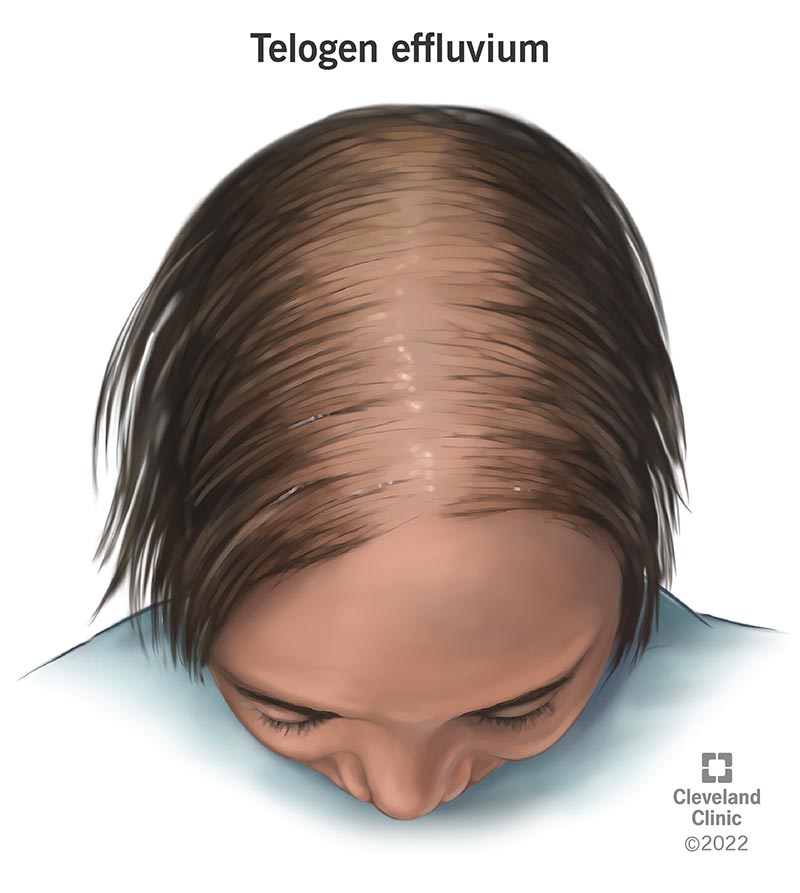Tube Rank: Your Guide to Video Success
Discover tips and insights for optimizing your video presence.
Hair Today, Gone Tomorrow: The Strange Science Behind Hair Loss
Unravel the intriguing science of hair loss with captivating insights and surprising facts. Discover why your hair might be disappearing!
Understanding the Hair Growth Cycle: What Causes Hair Loss?
The hair growth cycle consists of three main phases: anagen, catagen, and telogen. During the anagen phase, hair actively grows and can last for several years. Following this, the catagen phase is a transitional period that lasts a few weeks, where hair growth slows down and the hair follicle shrinks. Lastly, the telogen phase is a resting period, lasting around three months, after which the hair falls out and the cycle begins anew. Factors such as genetics, hormonal changes, and environmental influences can disrupt this cycle, leading to conditions that cause hair loss.
Understanding what causes hair loss requires a look into both internal and external factors. Internally, hormonal imbalances, particularly those related to androgens, can significantly impact hair growth. Additionally, nutritional deficiencies, such as a lack of iron or protein, may weaken hair follicles. Externally, stress, harsh hair treatments, and poor scalp health can also contribute to hair thinning. Therefore, maintaining a balanced diet, managing stress levels, and adopting gentle hair care practices are crucial for sustaining a healthy hair growth cycle.

Myths vs. Facts: Debunking Common Misconceptions About Hair Loss
When it comes to hair loss, many people are plagued by misconceptions that can lead to unnecessary worry or ineffective treatments. One common myth is that hair loss only affects older individuals; however, it can occur at any age due to a variety of factors including genetics, stress, and hormonal changes. Another prevalent myth is that excessive combing or washing can cause hair loss. In reality, regular hair care routines do not contribute to hair thinning, but rather, neglecting proper hair health can exacerbate the issue.
Understanding the facts behind hair loss is essential for making informed decisions. For instance, did you know that alopecia areata, a condition that causes sudden hair loss, can affect both men and women, irrespective of their age? Additionally, it's a misconception that only men experience hereditary hair loss; women can also be affected by genetic factors leading to thinning hair. By debunking these myths and knowing the facts, individuals can address their hair loss concerns more effectively and seek appropriate solutions.
Exploring the Role of Genetics and Hormones in Hair Thinning
Genetics plays a critical role in the development of hair thinning, affecting both men and women. Studies indicate that those with a family history of baldness are more likely to experience similar patterns of hair loss. This genetic predisposition is often linked to specific genes, such as the androgen receptor gene, which interacts with hormones that regulate hair growth. Understanding the hereditary patterns of hair thinning can empower individuals to seek early interventions and treatments, allowing for better management of their hair health.
In addition to genetics, hormones significantly influence hair thinning. Dihydrotestosterone (DHT), a derivative of the male hormone testosterone, is known to shrink hair follicles and shorten the hair growth cycle, leading to thinning hair. This is especially evident in conditions such as androgenetic alopecia, where both hormonal and genetic factors collide. Moreover, hormonal changes due to stress, pregnancy, and menopause can further exacerbate hair loss issues. By recognizing the interplay between genes and hormones, individuals can take proactive steps in addressing hair thinning through lifestyle changes or medical treatments.